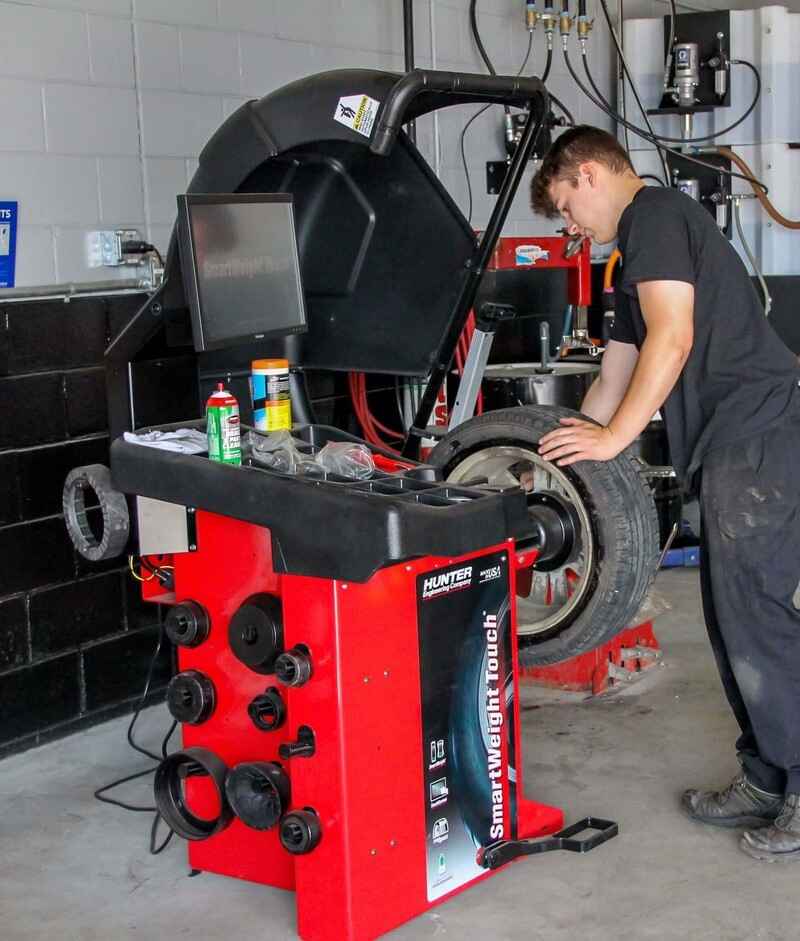Tire Pressure Monitoring System
Maintaining optimal tire pressure is an important factor in the running of your vehicle. It determines how much load your tires can safely carry without any safety hazards and prevents the risk of catastrophic tire failures.
As a vehicle owner, it is important for you to realize that tires aren’t invincible. They are made of layers of steel and fabric wrapped with rubber for a stronghold. So, if your tires are running on low air pressure, the rubber would be forced to stretch beyond its elastic limits and weaken. Eventually, your tires would be damaged beyond repair and could even fail entirely, putting you at risk of horrible accidents.
That is why the United States Department of Transportation (DOT) and the National Highly Traffic Safety Administration (NHTSA) has made it essential for all cars to have a Tire Pressure Monitoring System (TPMS) installed in them. If your vehicle is a model of 2008 and onwards, it needs to have a TPMS before you hit the roads.
What is TPMS?
The Tire Pressure Monitoring System is a way for your vehicle to warm you if one or more of your tires are under-inflated (low pressure). Since this creates unsafe driving conditions, it is important for drivers to pay close attention to the TPMS of their vehicles and act accordingly.
If your TPSM is flashing a yellow symbol that is illuminated on your dashboard panel, it is a sign that one of your tires has low pressure. You can then get your tires serviced from Jason’s Auto Services to ensure their maximum performance and driving safety.
What Type of TPMS Do You Need?
You can choose between types of TPMS based on your preference.
Direct TPMS
The TPMS is directly installed using pressure sensors on each wheel to measure the tire pressure and warn drivers if it falls 25% below the recommended cold tire pressure as per the vehicle’s placard. This is a more precise system that allows added safety as you drive.
Indirect TPSM
An indirect TPMS warns the driver when a single tire has lost pressure to about 25% as compared to the other tires in the vehicle. This is cheaper to install but can be quite unreliable if your vehicle’s tires are unevenly worn out.
Get Your TPMS Reprogrammed By Expert Tire Technicians in Biddeford!
Once the TPMS is installed, vehicle owners often think their work is done. This isn’t true! It is important to know that your TPMS will require some rewiring and reprogramming every time you get your tires rotated, balanced, or even mounted. The TPMS’s sensors will need to be carefully removed and reinstalled as per the requirements.
You need expert tire technicians to handle this for you, so your TPMS isn’t damaged as the tires are fixed. At Jason’s Auto Services, our team of expert vehicle technicians offers a full range of tire repairs and replacement services with extra attention made to the TPMS to ensure it works perfectly!
Looking for a full-service tire center to prevent false low tire pressure warnings and ensure your vehicle abides by DOT and NHTSA regulations? Reach out to Jason’s Auto Service today for advanced TPMS services carried out by expert mechanics!


